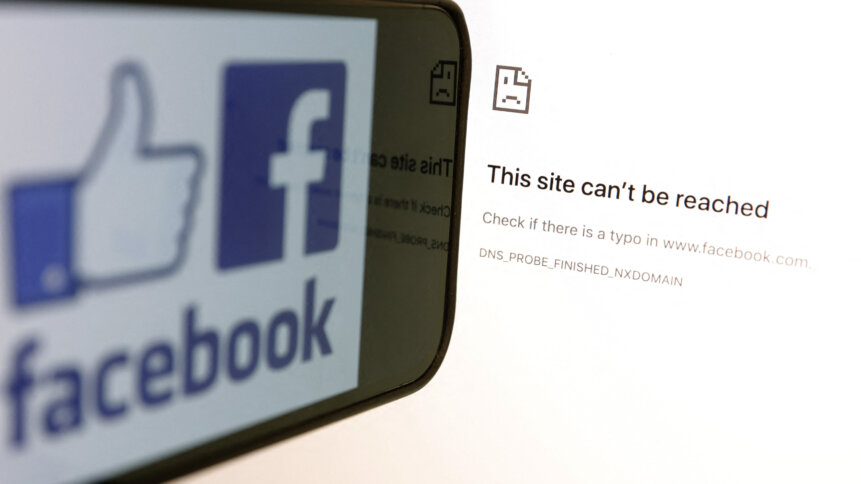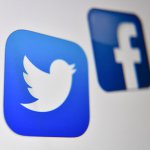Facebook, WhatsApp, Instagram outage causes severe business disruptions

Businesses rely heavily on social media platforms today. Be it large or small-medium enterprises, social media platforms like Facebook, WhatsApp, and Instagram enable them to not only communicate with their customers but also understand their wants and needs.
According to Facebook’s Q4 2020 results, 2.6 billion people use one of Facebook’s social media platforms daily, and well over 200 million businesses use these free tools to reach customers. Most of these businesses are small businesses, and rely heavily on social platforms to expand their reach and acquire more customers.
Hence when Facebook, WhatsApp, and Instagram suffered a massive six-hour shortage this week, the impact on businesses was quite unbearable to handle. The outage, which is the longest on the Facebook-owned platforms since 2008, saw the social media platform’s services unable to load and work in Europe and the US, leading to widespread panic as well among some users trying to figure out what was actually going on.
After all, 65% of Facebook’s users are made up of those below the age of 35. This group of users represents consumers that rely heavily on social media platforms to communicate and make consumer decisions.
With the apps suffering an outage, most of these users switched to alternate apps. Remote working employees that use Facebook, WhatsApp and Instagram to communicate had to move to text, emails, and other social messaging apps. The sudden surge of users on these apps led to some of those services slowing down as well.
Reports showed that messaging apps like Telegram were facing massive surges in new users during the outage. Gmail, TikTok, and Snapchat users also complained that those apps were slowing down as more users looked to alternatives to communicate or share that were not on the Facebook-owned services.
According to MarketWatch, the outage may have cost the company an average of US$163,565 in revenue every minute, or about US$60 million based on the six-hour downtime. The company’s net worth also dropped nearly US$6 billion throughout the period. The amount does not represent the losses faced by small businesses as well that rely solely on Facebook, WhatsApp, and Instagram for business.

(Source – Twitter)
Why did Facebook, WhatsApp, and Instagram take time to get back up?
As Facebook, WhatsApp and Instagram slowly began restoring services, the cause of the outage became clearer as well. Facebook said its engineers determined that the problem originated within a networking issue that interrupted communications between its data centers. What made matters worse was their remote working engineers were unable to fix the problem remotely either.
Speaking to TechHQ, the Acronis VP of Cyber Protection Research, Candid Wuest said, “While there’s no confirmation on what caused the incident from Facebook Inc, it’s possible that the issue lies with the BGP or DNS protocol – which happen to be popular targets among cybercriminals.”
Wuest explained that there are various potential attacks against DNS infrastructure – from DDoS attacks to local DNS rebinding or hijacking a DNS with social engineering against the registrar. “Looking at overall attack statistics, they are a lot less popular than common malware and ransomware attacks, but they can be extremely devastating if successful in a sophisticated attack. It’s like pulling the electric cable to your server room – whole enterprise suddenly goes dark,” said Wuest.
He added that protection against DNS attacks is not trivial as they come in multiple facets. It requires strong authentication and patching to guard your own services, training against social engineering attacks, as well as classical DDoS mitigations from providers, such as Cloudflare.
“Naturally, configuration issues should be avoided as well. Depending on what service is attacked – for example, if it’s a central authentication server shared between multiple brands, like in this case, then such a single outage can lead to multiple brands going offline. To be fair, we must note that most commonly such outages are caused by non-malicious actions – suspect it to be the case here too.”
Interestingly, the outage comes after reports of the social network’s profit prioritization over users’ safety by a whistleblower. Although Mark Zuckerberg, Facebook CEO apologized to users for the disruption, the reality is, such a disruption clearly indicates the heavy reliance businesses and society have on social media.
For organizations, many were left completely paralyzed from the outage, as they did not have any backup planned should a prolonged outage occur. As such, businesses need to be ready to face such disruptions in the future. The six-hour social media platform outage may not be the last one and businesses need to find ways they can still connect with their customers through other alternative platforms.










